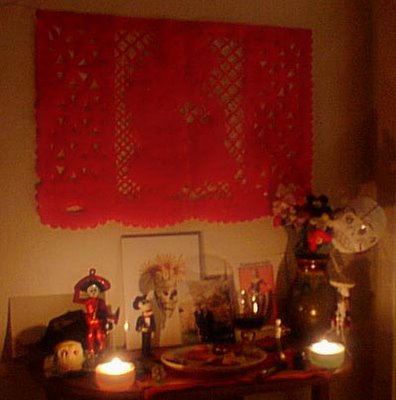I freely admit that I have been, and probably continue to be naïve and overly idealistic when it comes to my ideas of justice, equality, and human rights. But I don’t care. I think idealism is entirely appropriate when considering human rights and something that we should strive for, even if the whole time we admit that the perfection inherent in idealism is impossible to achieve.
I grew up believing, again admittedly naively, that the United States was at the pinnacle of supporting, defending, and promoting human rights. As I matured in my thinking, I came to understand that the United States is not and never has been perfect in its promotion of all things good. To believe it to be so is to be a blind patriot—unwilling to critique the shortcomings of one’s nation, and even, perhaps, unwilling to strive to be better. How would my belief that the US was right and good because I’m an American be any different than citizens of the former Soviet Union believing their system was right, or Iranian citizens believing their system is right? We/I need to be more objective and critical when it comes to issues like justice, and human rights. These things supersede nationalism.
I have been deeply disturbed of late over what seems to be regular lapses in the United State’s stated commitment to human rights: our treatment of the elderly and poor needing medical care, our treatment of victims of disaster, the Abu Ghraib scandal, the issue of torture, the ongoing issue of prisoners at Guantanamo and other secret prisons in Eastern Europe and who knows where else—how long can this list go on? Today in the morning papers, I was deeply disturbed to read that United Nations inspectors have decided not to inspect the US prison at Guantanamo because the US refuses to allow inspectors to interview prisoners privately. UN inspectors charged with checking on rights abuses around the world by the UN Human Rights Commission had been invited to inspect Guantanamo by the US. Privately interviewing prisoners is regarded as standard operating procedure. The UN experts have said that interviews monitored by the US would “undermine the principles” of seeking to provide neutral, independent assessments of respect for human rights. Let us also not forget that the inmates at Guantanamo are being held has “enemy combatants,” a category of prisoner the US regards as not possessing the same rights as prisoners of war under the Geneva Conventions.
UN experts have wanted to visit Guantanamo since 2002. Earlier this year they said they wanted to go because they had reliable reports that inmates at Guantanamo had been tortured, and many of these allegations had come to light from the US’s own declassified government documents. The UN says that it is, “particularly disappointing that the United State government, which has consistently declared its commitment to the principles of independence and objectivity of the fact-finding mechanisms, was not in a position to accept these terms.” I am particularly disappointed as well, and I firmly believe that we all should be so. The US government must be held accountable.
To date, the US has only allowed the International Committee of the Red Cross to have unsupervised access to prisoners at Guantanamo. Sounds good, right? Unfortunately, the Red Cross’ reports are confidential and only submitted to the detaining power. UN reports would be made public.
If the US is truly committed to defending human rights, then it must open access to prisoners at Guantanamo, and elsewhere. It must clearly and directly denounce torture. It must admit its own shortcomings and commit itself to correcting those shortcomings and to doing better in the future. Yes this view is idealistic and perhaps naïve, but I firmly believe it is necessary.
3 years ago

